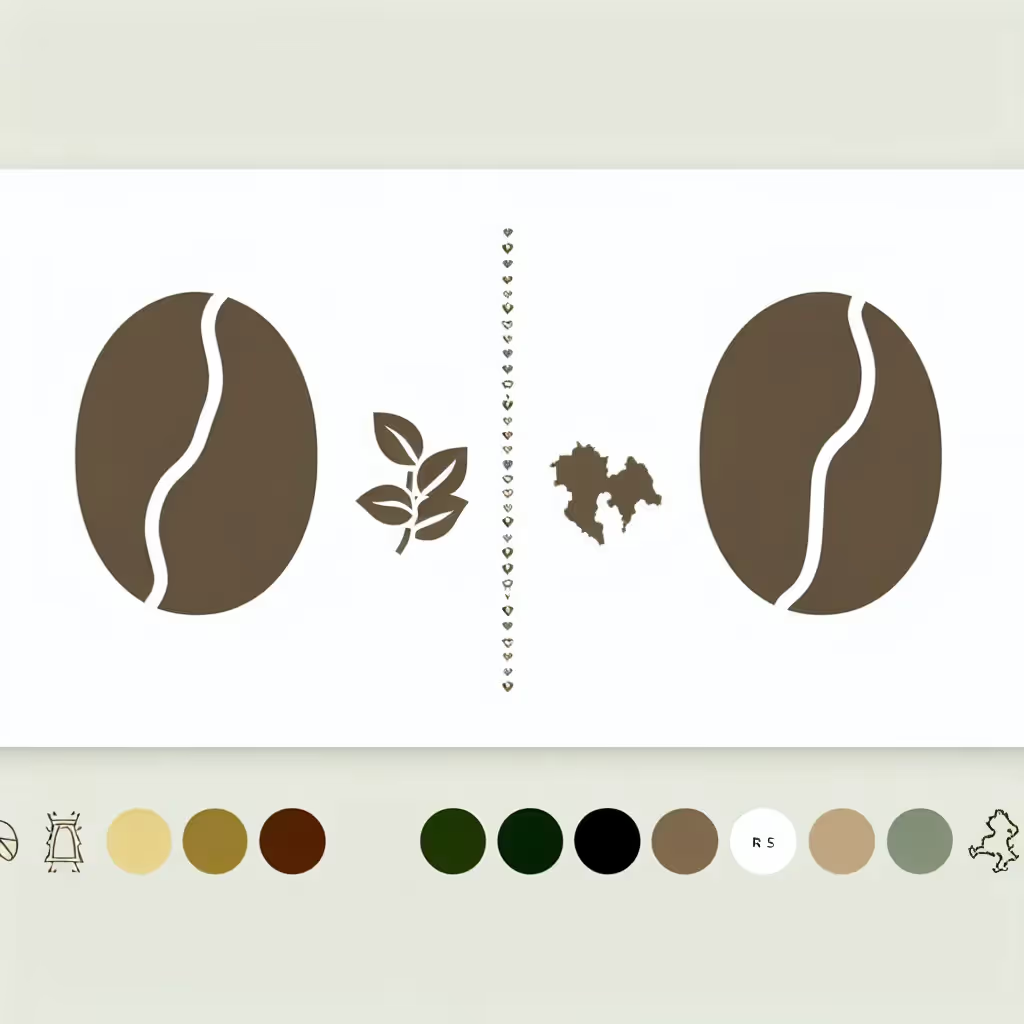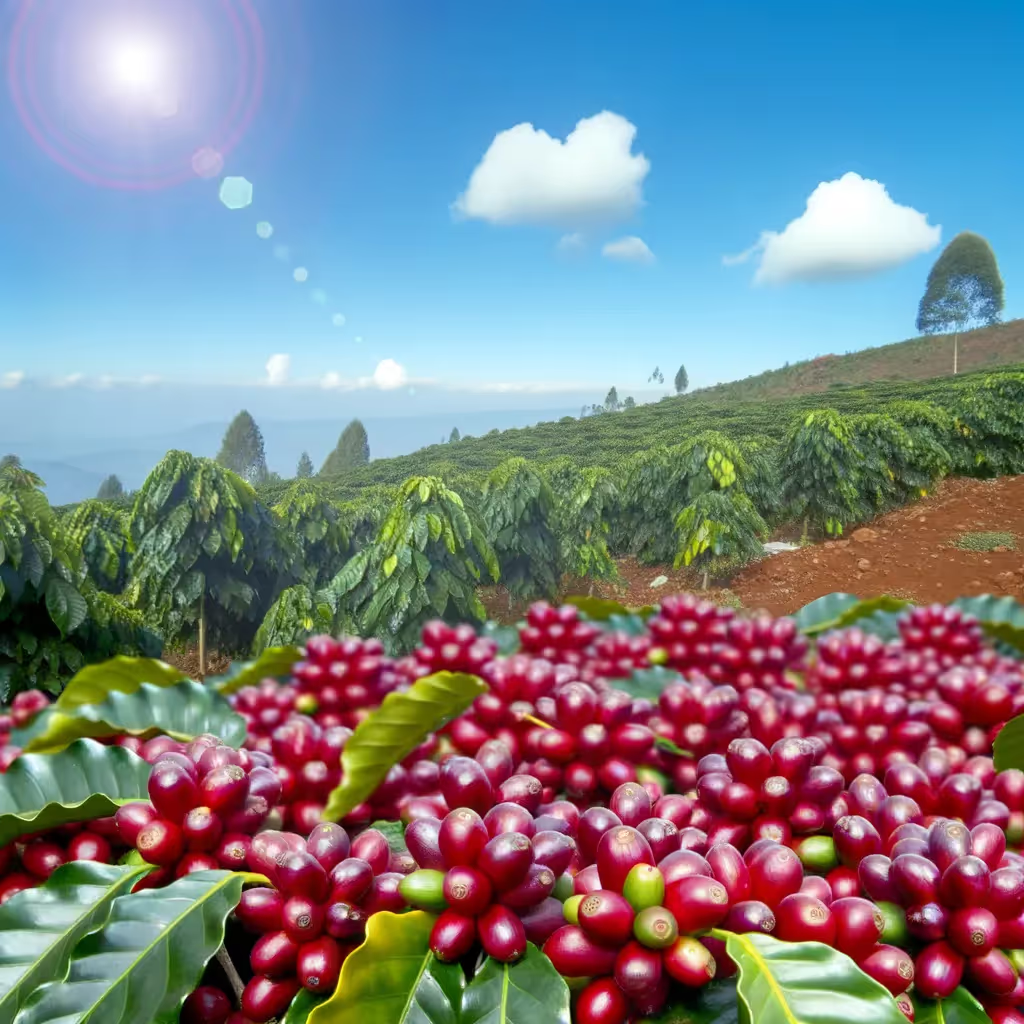Honduran Vs. Rwandan Coffee
This comparison explores the distinctive qualities of Honduran and Rwandan coffee, examining their flavor profiles, growing conditions, and brewing methods to help coffee enthusiasts make informed choices.

Brief Description
Honduran coffee is a hidden gem in the world of specialty coffee, offering a delightful balance of sweetness and acidity. Grown in the lush mountains of regions like Copán, these beans benefit from ideal growing conditions, resulting in a cup that's both complex and approachable. With notes ranging from chocolate to tropical fruits, Honduran coffee is rapidly gaining recognition for its unique flavor profile and consistent quality.
Rwandan coffee is a hidden gem in the specialty coffee world, known for its bright acidity, complex flavors, and clean cup profile. Grown in the high-altitude regions of this small East African nation, Rwandan coffee benefits from rich volcanic soils and ideal growing conditions. The country's tumultuous history has given way to a thriving coffee industry, with smallholder farmers producing some of the most sought-after beans in Africa. Rwandan coffee is characterized by its tea-like body, citrus notes, and often floral or fruity undertones, making it a favorite among coffee enthusiasts seeking unique and vibrant flavors.
Importance of Comparison
Comparing Honduran and Rwandan coffee is crucial for coffee lovers seeking to expand their palate and understand the nuances of different origins. These two regions offer unique flavor profiles and represent emerging specialty coffee markets, providing insights into how geography, climate, and processing methods influence taste. Understanding these differences helps consumers make informed purchasing decisions and appreciate the diversity of the coffee world.
Key Attributes
Origin
Honduran
Rwandan


Consumer Guide
When choosing between Honduran and Rwandan coffee, consider your flavor preferences. Honduran coffee offers a balanced profile with chocolate and caramel notes, ideal for those who enjoy a classic, approachable cup. Rwandan coffee, with its bright acidity and floral notes, appeals to adventurous drinkers seeking unique flavors. For brewing, both origins excel in pour-over and French press methods. Honduran beans are versatile and work well in espresso, while Rwandan coffee shines in cold brew. Consider the roast level: medium roasts highlight the unique characteristics of both origins. Lastly, think about supporting smallholder farmers – both countries have a significant number of small-scale producers contributing to the specialty coffee market.
Expert Opinions
Coffee expert Maria Rodriguez notes, 'Honduran coffee offers a comforting, familiar profile that's perfect for everyday drinking, while Rwandan coffee provides a more exotic experience with its tea-like body and vibrant acidity.' Roaster John Smith adds, 'The chocolate notes in Honduran coffee make it a crowd-pleaser, but the complexity of Rwandan beans often surprises and delights coffee connoisseurs. Both origins showcase the importance of terroir in coffee production.'
FAQs
Honduran coffee typically features chocolate, caramel, and citrus notes, offering a balanced and approachable flavor profile. Rwandan coffee, on the other hand, is known for its bright acidity, citrus notes, floral undertones, and red berry flavors, providing a more complex and vibrant taste experience.
Honduran coffee is grown at altitudes ranging from 1000 to 1700 meters, in lush mountain regions with ideal climate conditions. Rwandan coffee is cultivated at slightly higher elevations, typically between 1200 to 2000 meters, in volcanic soils that contribute to its unique flavor profile. Both countries benefit from excellent growing conditions, but the differences in altitude and soil composition contribute to their distinct taste characteristics.
Both Honduran and Rwandan coffees excel in pour-over and French press brewing methods, which highlight their unique flavor profiles. Honduran coffee is also well-suited for espresso preparation, thanks to its balanced flavor and versatility. Rwandan coffee, with its bright acidity and complex flavors, performs exceptionally well in cold brew, bringing out its fruity and floral notes.
Honduras is a much larger coffee producer, with an annual production of around 475,000 metric tons. Rwanda, being a smaller country with a more recent specialty coffee industry, produces significantly less at about 16,000 metric tons annually. This difference in scale affects availability and sometimes price, with Rwandan coffee often being considered more exclusive in the specialty market.
Both Honduran and Rwandan coffee producers employ a variety of processing methods, including washed, natural, and honey processing. The washed process is particularly common in both origins, contributing to the clean cup profiles they're known for. The choice of processing method can significantly impact the final flavor profile, allowing for diverse taste experiences within each origin.
Coffee production plays a crucial role in both countries' economies. In Honduras, coffee is a major export and source of rural employment. For Rwanda, the coffee industry has been instrumental in the country's economic recovery and development following the 1994 genocide. Both nations have invested in improving coffee quality and promoting their beans in the specialty market, contributing to increased recognition and higher prices for their products.
Conclusion
Honduran and Rwandan coffees offer distinct and rewarding experiences for coffee enthusiasts. Honduran beans provide a comforting, balanced profile with chocolate and caramel notes, ideal for those seeking a reliable daily brew. Rwandan coffee, with its bright acidity and complex flavors, appeals to adventurous palates looking for unique taste experiences. Both origins showcase the importance of terroir and careful processing in coffee production. Whether you prefer the approachable sweetness of Honduran coffee or the vibrant complexity of Rwandan beans, exploring these origins will deepen your appreciation for the diverse world of specialty coffee.






